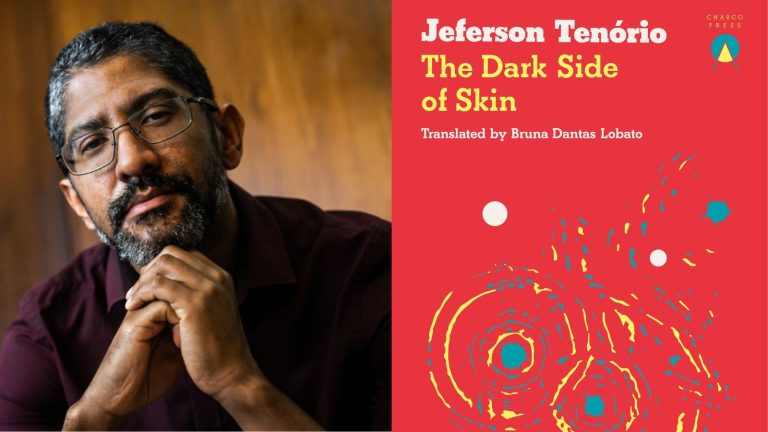
Race relations in modern Brazil in Jeferson Tenório’s ‘The Dark Side of Skin’
28 January, 2024Inspired and motivated by a moment of real-life police harassment, the story is narrated in the second person by Pedro, who recounts the life of his father, Henrique, who was killed by police in an incident.
A relatively recent interest in black Brazilian writers has enabled what could be seen as a new wave of Afro-Brazilian writing, books that include The Sun on my Head by Geovani Martins, Ana Maria Gonçalves’ Um Defeito de Cor and Crooked Plow by Itamar Vieira Junior, all acclaimed, all exploring the inherent racism that still exists in Brazil, but all differing in style and period.
In the past Brazil has prided itself on being a country where ‘racism doesn’t exist’, however, this is an outdated myth, famously perpetuated by authors such as Gilberto Freyre, in which the “cordial man” of Brazil lives in a mixed-race paradise where people simply don’t see colour, and different classes and races mix easily in the downtown bars.
But look at areas like the education system, where all-white private schools demonstrate the financial apartheid that exists, where few people of colour have access to the standards of living that (mainly) whites take for granted. One reason for this is that, unlike the USA, Brazil never had its civil rights movements, as there was seen to be no need for this, and the after-effects of slavery were never really resolved, just allowed to fester under a veneer of post-colonial respectability.
Jeferson Tenório, originally from Rio de Janeiro, is currently a teacher of literature in Porto Alegre. The Dark Side of Skin is his third novel and winner of the esteemed Jabuti national literature prize. Inspired and motivated by a moment of real-life police harassment, the story is narrated in the second person by Pedro, who recounts the life of his father, Henrique, who was killed by police in an incident.
Pedro shows the reader the hard life of a black boy in the city of Porto Alegre in the gaucho south of Brazil, which is described by Henrique as “the most racist city in the country”. A strong statement, but this is where, even in 2020, a month after the murder of George Floyd, João Alberto Silveira Freitas was killed by white security guards at a Carrefour supermarket. I recall working in Porto Alegre at this time and talking about this with a colleague, who turned to me and told me it was a lot of fuss about nothing.
Our protagonist struggles to find his place in society. The racism he experiences in job interviews permeates society showing how the State neglects to offer people like him any opportunities. Pedro interweaves his father’s life with his mother’s. She is a complex and believable character, full of contradictions, who was brought up in a one-room shack on a hillside and needed to escape a stifling first marriage. The timeframe jumps from one moment to another, and from one person to another, though the reader is always clear on where they are in the story.
The themes examine the failing education system, casual police racism, dysfunctional relationships, and the fact that, most importantly, for all the talk of black rights and protest movements, the reality and hardships of black women in Brazil are never considered.
As in the original Portuguese, the translated writing flows with no paragraphing, which creates a certain urgency, while the use of the second person portrays an intimacy. The author has previously said that the lack of paragraphs was intentional, so as to grab the attention of the reader, leaving just a few spaces for a breather.
The translation by Bruna Dantas Lobato is thoughtful and considered as she explains in her notes at the end, going into great detail about how she decided upon the correct title, the word avesso in the original title ‘Avesso da Pele’ being particularly tricky to define, its meaning ranging from opposite to resistant, but she decided on the multiple implications of dark instead.
There is tragedy here, but there is also optimism. Henrique’s struggles in the classroom with his uninterested students are met with a breakthrough at a key moment in the story. It’s a worthy addition to current Brazilian literature and well worth reading if you want to get your head around race relations in modern Brazil.
Pre-order The Dark Side of Skin by Jeferson Tenório, translated by Bruna Dantas Lobato, from Charco Press.
Follow Sounds and Colours: Facebook / Twitter / Instagram / Mixcloud / Soundcloud / Bandcamp
Subscribe to the Sounds and Colours Newsletter for regular updates, news and competitions bringing the best of Latin American culture direct to your Inbox.

